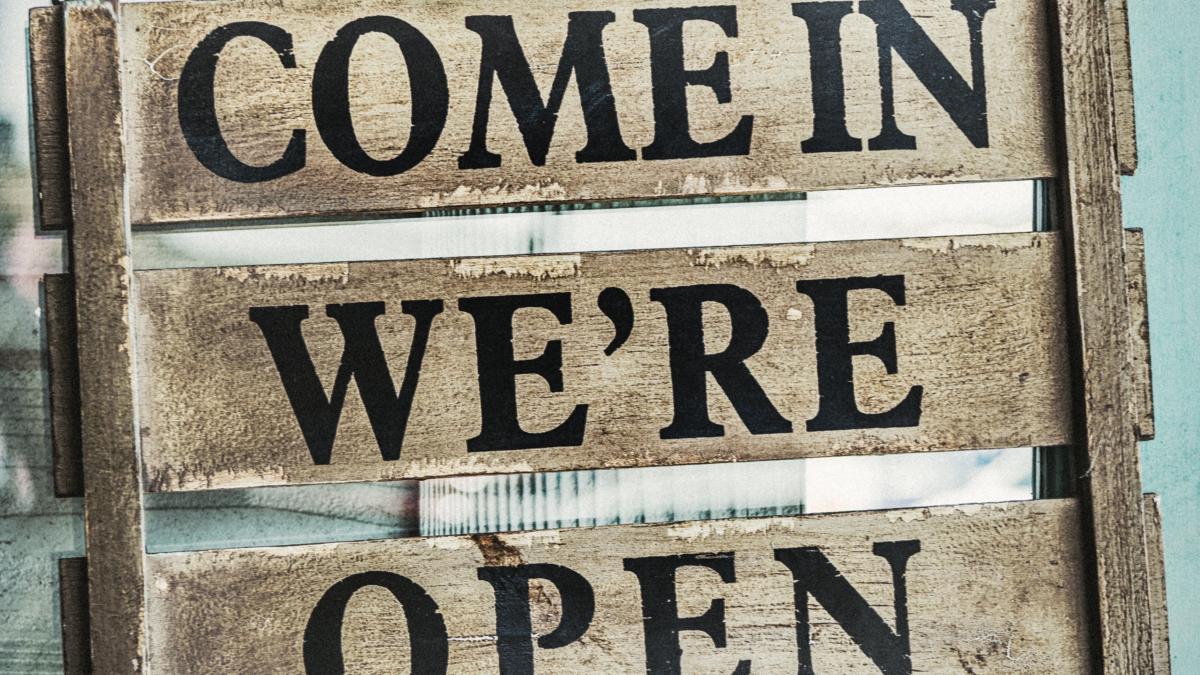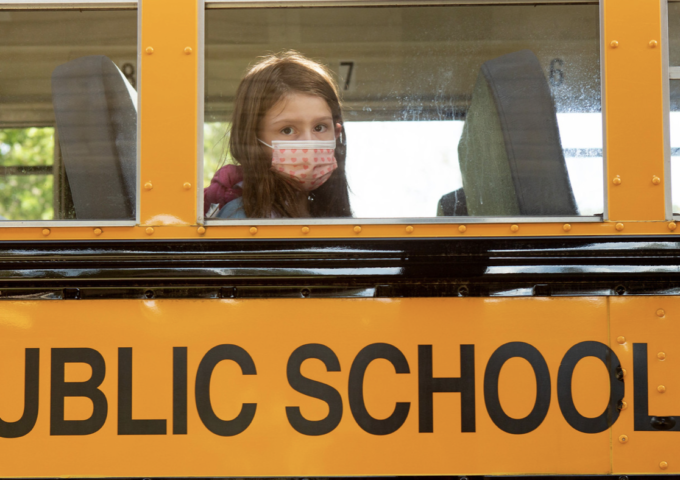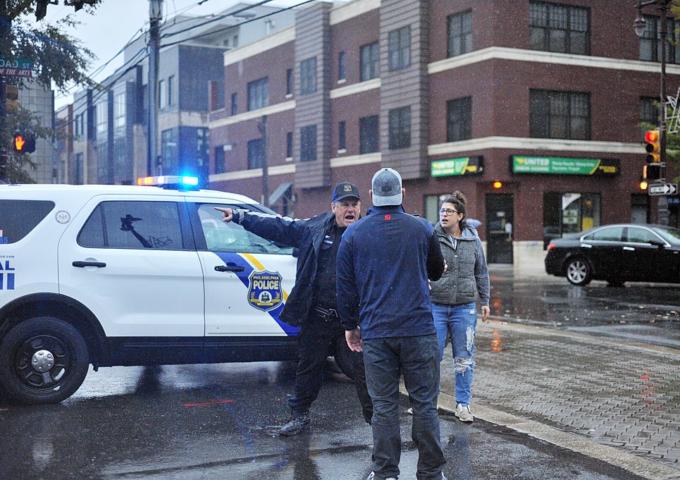One hundred seventy years ago, the Mason-Dixon Line that forms the Pennsylvania-Maryland border was often seen as the invisible line beyond which the evils of slavery were allowed to exist. But for freedom seekers like Harriet Tubman, crossing the Mason-Dixon Line into Pennsylvania represented a step into a better world. Philadelphia doesn’t have much to formally commemorate Harriet Tubman, but the area still bore witness to some of the most important events in Tubman’s life.
Tubman, who was enslaved by Edward Brodess in Maryland, made a bold escape to freedom in 1849, heading north from the Eastern Shore into Delaware until she crossed into Pennsylvania, a free state. It was where she first gained her freedom, and where she first worked to support herself without paying her slaveholder for the “privilege” of doing so. She saved what she could from working as a domestic worker in Philadelphia, and crossed back over to the dark side of that line on her first of at least 13 missions to rescue family and friends and become the most famous conductor on the Underground Railroad.
But Tubman was not able to permanently settle in Philadelphia. Soon after arriving in the city, Congress passed the Fugitive Slave Act, which made law enforcement throughout the nation cooperate with slaveholders intent on finding freedom seekers and returning them into bondage. Given its proximity to the slave states of Maryland and Delaware and the slave catchers already active there for decades, Philadelphia was no longer the safe haven it was when she arrived. Tubman would ultimately bring most of those she rescued to Auburn, New York, or southern Ontario, Canada. Abolitionists made Auburn comparatively safe, and the Fugitive Slave Act did not apply in Canada.
There were still many in Philadelphia who opposed slavery and helped Tubman on her rescue missions. Underground Railroad conductor William Still operated a secret station for freedom seekers at 244 South 12th Street and assisted Tubman many times. Still’s station would become Tubman’s go-to stop whenever she led freedom seekers through Philadelphia. He would provide assistance to many people that Tubman brought north, including the Ennals family and Tubman’s parents. Many free Blacks like Still were conductors on the Underground Railroad, and in a few rare cases enslaved Blacks were as well.
White community members in Philadelphia, especially Quakers, also worked on the Underground Railroad and helped Tubman on her missions. Tubman’s friend Lucretia Mott was a Quaker woman who assisted Tubman throughout her life. A steamboat captain once wrote Tubman a pass stating that she was free and living in Philadelphia to allow her to travel across the Mason-Dixon Line to rescue an enslaved woman in Baltimore.
Despite being denied the right to vote, during her time in the city, Tubman was politically and militarily active as well. She likely attended the National Colored Convention in Philadelphia in 1855, along with other notable figures like Frederick Douglass and William Still. Many attendees, including Tubman, also visited Underground Railroad conductor Passmore Williamson while he was imprisoned in Moyamensing Prison at the corner of 11th Street and Passyunk Avenue in Philadelphia. Until the end of her life, Tubman worked for civil rights and women’s rights, giving persuasive lectures throughout the Mid-Atlantic.
When the Civil War broke out, Gov. John Andrew of Massachusetts realized that Tubman’s skill as a conductor on the Underground Railroad could be put to use for the war effort, and arranged for her to travel to South Carolina. There she worked as a spy, scout, and nurse for the U.S. Army and became the first American woman to lead an armed raid, in the process freeing over seven hundred enslaved people. Returning from leave in Auburn to visit family, in April 1865 Tubman gave an address at Camp William Penn in La Mott to the United States Colored Troops 24th Regiment about her service in the war. Coincidentally, her future husband, Nelson Davis, had enlisted at that same camp in 1863.
Philadelphia was the first place Harriet Tubman was free, and while she had to leave for her safety, she would remain free for the rest of her days.
Adam Larson is a seasonal park ranger at Harriet Tubman Underground Railroad State Park in Church Creek, Maryland.
_________________
Police reform? No, just more of The Big Lie
It is known by many names: The Big Lie, dezinformatsiya, and disinformation. But they all mean the same thing – false, misleading information; distortion or mischaracterization of facts solely for the purposes of deception.
One of the main targets of The Big Lie, and understandably so, are the police. Police are the most powerful domestic arm of government. They are also its most visible arm. So when one hears politicians, “activists” and the media talk about police reform it is just the Big Lie. Reform is not the objective, abrogation is.
One example of The Big Lie spread about the police was the shooting of Jacob Blake by Kenosha, Wisconsin, police. The shooting triggered nights of violent rioting. The Big Lie was that Blake was an unarmed Black man shot by a racist White police officer.
CNN’s Jake Tapper stated this during a broadcast. He said, “Video shows police shoot unarmed black man.” Future President Joe Biden repeated The Big Lie. He tweeted, “Once again, a Black man – Jacob Blake – was shot by the police. In front of his children. It makes me sick. Is this the country we want to be?”
But the truth was that Jacob Blake was armed.
Another example of The Big Lie was the police shooting of Michael Brown. The media routinely pedaled the falsehood that Brown had his hands up and was surrendering when shot by a Ferguson, Missouri police officer. The truth was that Brown did not have his hands up asking the police not to shoot. But the facts did not prevent future VP Kamala Harris from repeating The Big Lie – five years after the incident occurred.
Police are vulnerable to The Big Lie because they take actions and make judgments in nanoseconds during moments of mayhem and terror. Actions and judgments that their contemners and critics – journalists, lawyers, civil rights leaders, civil libertarians, judges, and jurors – have hours, days, weeks, months, and even years to deliberate, reconsider, debate and resolve.
Police are easy to condemn because they operate within a framework of unstable laws, rules, and procedures that have the consistency of the color of a chameleon on a kaleidoscope. They must somehow adhere to policies and laws that change sometimes whimsically.
Police are never called when things are trouble-free. They are only called when there is trouble, tumult and often death.
Society expects the impossible from the police. They are expected to comport themselves with the refinement of a head waiter, but be stern and cruel as a soldier in battle – simultaneously. They are expected to leave the scene of a gruesome automobile accident, a horrible rape, or murder, or a vicious domestic dispute, then return home within 30 minutes to have dinner with their family – acting as if nothing ever happened. They are expected to leave a holiday dinner and, within the hour, transport a suicide, a corpse impaled on a spike, to the morgue. Indeed, some police officers work rotating shifts, which severely disrupts biorhythms.
Despite these stark emotional transitions and stresses, society’s elite ignores the emotional, mental and physical toll on police. Why they do so defies comprehension.
I recall a conversation with a friend about combat versus policing. He is a decorated, Purple Heart Vietnam veteran. We spoke of the differences between his wartime service and my duties as a police officer in an inner-city, high-crime area of Philadelphia. One of the differences we noted was decompression.
A soldier overseas does not immediately return to the tranquility of home life. Despite this time to readjust from the brutality of combat, soldiers still suffer PTSD.
On the other hand, a police officer experiencing a life-or-death situation does not have time to readjust to the tranquility of the home. For example, once, after taking a gunshot victim to the hospital at the end of my shift, I noticed the victim’s blood and what looked like skull fragments on my uniform as I entered my home. I quickly showered, changed clothes, and put my uniform in a trash bag to take to a laundry later on before sitting down to dinner.
Despite the conflicting roles, responsibilities and burdens society puts on the police officer, they do their job anyway. But if a police officer makes a mistake, there are legions ready to exploit it for personal gain. Journalists, “civil rights” lawyers, “civil rights” leaders – none of them could do the job they ask of police. But they will profit from police errors.
The police are an impediment to those seeking to overthrow the established order. Police are obstacles to power and wealth. It is imperative for “revolutionaries” to discredit law enforcement. False claims of systemic racial injustice and brutality are propaganda used to silence dissent and demonize the police.
Do not be fooled by The Big Lie. Reforming and improving police are not the intent, vilification and vitiation are.
Michael P. Tremoglie is a former Philadelphia police officer turned writer and journalist.




